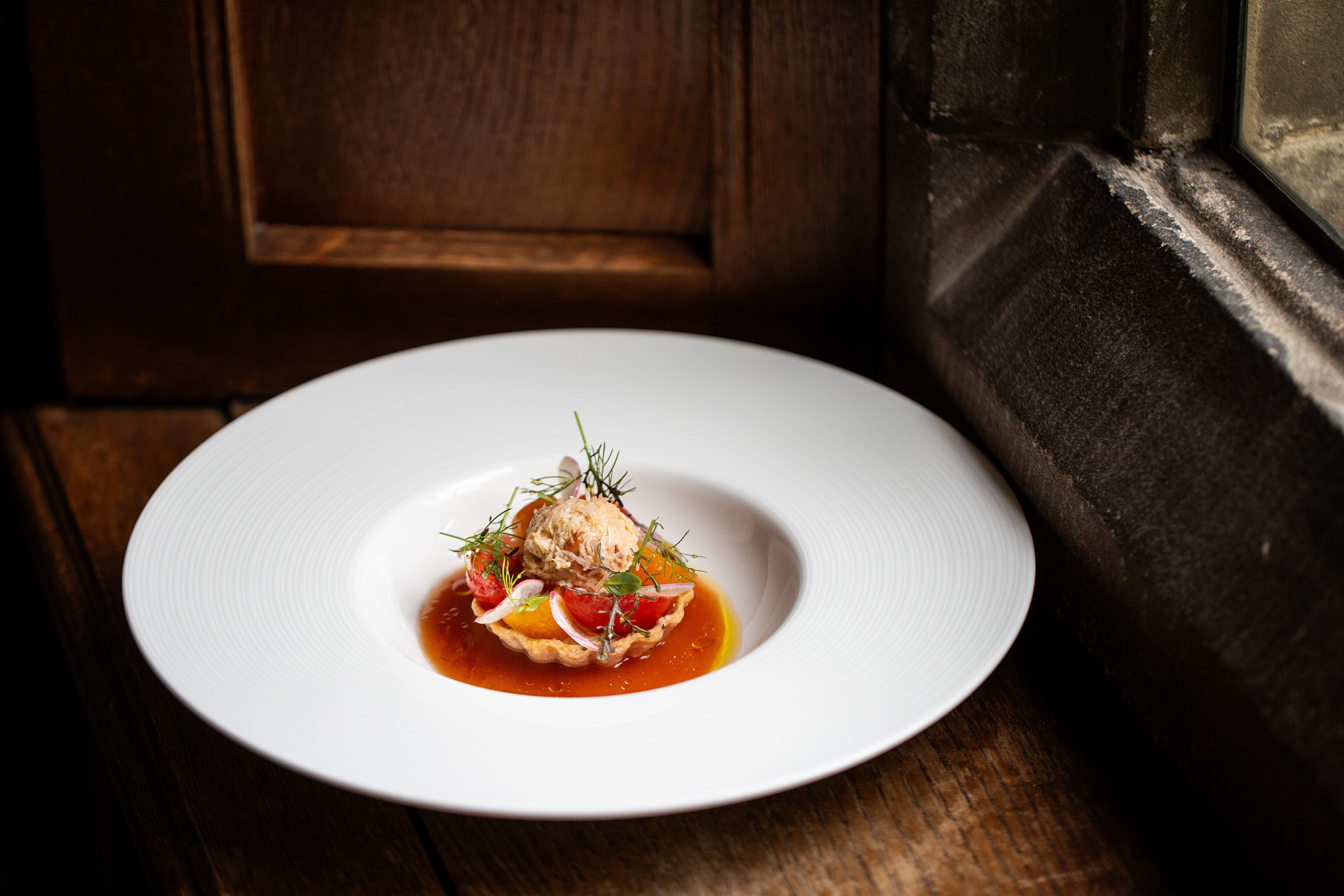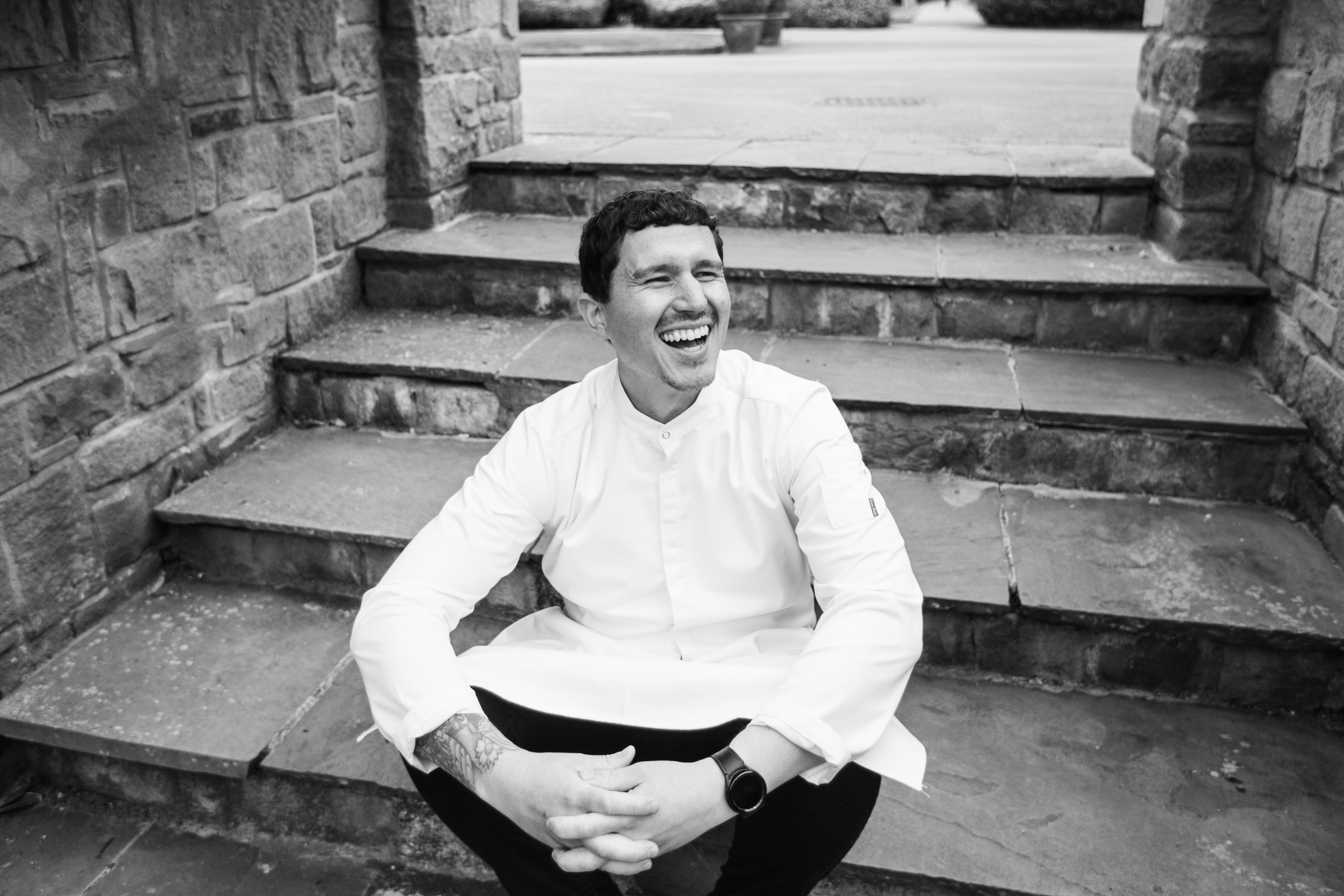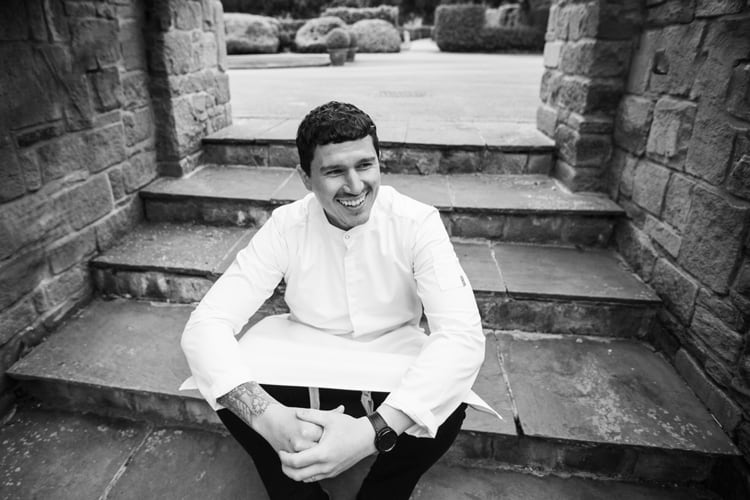You first worked at Mallory Court early in your career; how did the opportunity to return come about?
Like a lot of things in life, it just happened. It was perfect timing for both of us, I guess. I’d been at Hampton Manor Estate for nearly four years, where I’d been able to bring a bit of creativity following MasterChef with Smoke. It was the first time I really put my own identity onto a restaurant. Everywhere I’d been before had been very established places where you learn rather than impart any of your own personality.
Tell us about the new restaurant
It’s called The Warwick. The name is very much about the city; it’s a very established and loved place. We’re drawing some inspiration from Warwick Castle and the region’s medieval legacy. For the concept, we’ve gone back to what makes a classical manor house restaurant. We’re cooking in a traditional style with flavours people recognise. We’re not trying to reinvent the wheel. It’s all about provenance; using the best of British produce and flavours that go together. I’m not trying to be the Noma of the Midlands. It’s about cooking classically, cooking well, and not f***ing it up.

What job has had the most significant impact on you as a chef in the years between working at Mallory Court?
I don’t think there’s any one restaurant or hotel in particular that’s had a total sway on what I do. At the beginning of my career, I cooked at Brockencote. I had come from a council estate and never come across scallops, foie gras, lobster and langoustines before. The head chef at the time was cooking things I’d never seen before. It completely blew my mind and really put me on that trajectory of knowing what I wanted to do, cooking with great ingredients in a nice country house hotel. But I also had hunger to work in a Michelin restaurant, so went over to Simpsons, which was a completely different experience. There were different things to learn, and I felt a lot more rounded for it. I was also at The Wilderness for a time, which was the most creative place I worked. I learnt a lot there about freedom of expression.
How big an impact did winning MasterChef: The Professionals have on your life?
I’ve never been able to go to Ikea and eat a hot dog since. I tried to do that a few weeks after the final episode aired and as I was eating, I had people coming up to say hello to me and get pictures. It was completely bonkers, and it still happens now. It’s really humbling, because people are so nice about it.

When did you get the idea to launch the Stu Deeley Professional Chef Academy?
It’s a partnership between me and Chris Hughes, who’s one of the senior lecturers at Halesowen College. He was teaching there when I was a student, and we kept in touch. Off the back of MasterChef we spoke about the drop in people wanting to go onto catering courses and about why that might be. And together we saw an opportunity to test something out. It’s an enrichment course that we offer, not necessarily something that you get a qualification for. It teaches classical skills, as well as enhanced cooking techniques with ideas and concepts you don’t necessarily see on a standard course. Alongside that we also have speakers come in from across the industry. Not just focused on cookery, but also marketing, events etc. It’s about showing chefs about the options and opportunities in this industry. A lot of people assume when you’re a chef it’s all about fine dining, but it’s not, it’s so diverse. We started with eight students in our first year, and we now have an intake that’s double that.
What advice would you give to young and aspiring chefs looking to progress through the industry?
Finding a mentor is one of the biggest pieces of advice I can give anyone. Find someone who sees you for who you are, someone who wants to see you progress and not just use you as a cog in a wheel. And be a leech on that person. Copy their good bits, ignore their bad bits, and try to be the best version of you. And if you do that it shows on the plate, I think.


